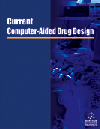
Molecular Docking, In-Silico ADMET Study and Development of 1,6-Dihydropyrimidine Derivative as Protein Tyrosine Phosphatase Inhibitor: An Approach to Design and Develop Antidiabetic Agents
Background: 1,6-Dihydropyrimidine exerts notable pharmacological efficiency and emerged as integral backbones for treatment of type-II diabetes mellitus. To optimize the in vitro and In-silico study we carried out on substituted 1,6-Dihydropyrimidine. The objective of the present study
is to evaluate the binding interaction of 1,6-Dihydropyrimidine compounds with Protein Tyrosine Phosphatase (PTP1B) enzyme and also check ADME/T properties of best scored compounds.
Methods: The In-silico study (docking) was carried out through target Protein Tyrosine Phosphatase (PTP1B) retrieved from protein data bank having PDB ID: 2QBS and the anti diabetic activity of the test compounds was tested against protein tyrosine phosphatase (PTP1B) enzyme by using Calbiochem ® PTP1B colorimetric assay kit.
Results and Conclusion: The results of molecular Docking revealed that, with respect to their free binding energy 6A, 3K, 1B and 2K compounds have the lowest binding energy compared to positive control. In-silico ADME/T predictions revealed that all best scored compounds had good absorption as well as solubility characteristics through substrate binding sites. After conducting the in vitro studies it was observed that compounds having -3NO2, 3,4-OCH3, 4-NO2 and 4-Cl substitution on phenyl ring in the basic moiety shows good anti diabetic activity The present computational approach provided valuable information on the binding process of 1,6-Dihydropyrimidine compounds to the binding site of PTP-1B. These compounds may serve as potential lead compound for developing new 1,6- Dihyropyrimidine as a promising anti diabetic agent.
Methods: The In-silico study (docking) was carried out through target Protein Tyrosine Phosphatase (PTP1B) retrieved from protein data bank having PDB ID: 2QBS and the anti diabetic activity of the test compounds was tested against protein tyrosine phosphatase (PTP1B) enzyme by using Calbiochem ® PTP1B colorimetric assay kit.
Results and Conclusion: The results of molecular Docking revealed that, with respect to their free binding energy 6A, 3K, 1B and 2K compounds have the lowest binding energy compared to positive control. In-silico ADME/T predictions revealed that all best scored compounds had good absorption as well as solubility characteristics through substrate binding sites. After conducting the in vitro studies it was observed that compounds having -3NO2, 3,4-OCH3, 4-NO2 and 4-Cl substitution on phenyl ring in the basic moiety shows good anti diabetic activity The present computational approach provided valuable information on the binding process of 1,6-Dihydropyrimidine compounds to the binding site of PTP-1B. These compounds may serve as potential lead compound for developing new 1,6- Dihyropyrimidine as a promising anti diabetic agent.
Keywords: 1,6-Dihydropyrimidine; ADMET study; In-silico study; Protein Tyrosine Phosphatase (PTP1B); antidiabetic activity; apoptosis
Document Type: Research Article
Publication date: 01 October 2018
- Current Computer-Aided Drug Design aims to publish all the latest developments in drug design based on computational techniques. The field of computer-aided drug design has had extensive impact in the area of drug design. Current Computer-Aided Drug Design is an essential journal for all medicinal chemists who wish to be kept informed and up-to-date with all the latest and important developments in computer-aided methodologies and their applications in drug discovery. Each issue contains a series of timely, in-depth reviews written by leaders in the field, covering a range of computational techniques for drug design, screening, ADME studies, etc., providing excellent rationales for drug development.
- Editorial Board
- Information for Authors
- Subscribe to this Title
- Ingenta Connect is not responsible for the content or availability of external websites
- Access Key
- Free content
- Partial Free content
- New content
- Open access content
- Partial Open access content
- Subscribed content
- Partial Subscribed content
- Free trial content